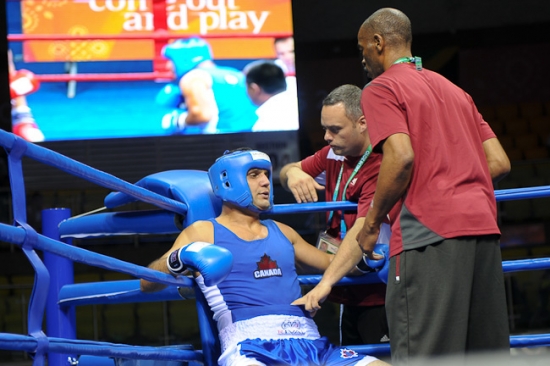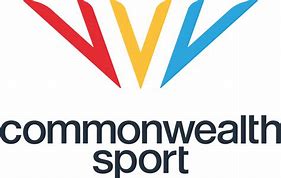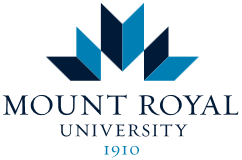Commonwealth Games: “No better way to prepare coaches for the Olympics”

Commonwealth Games: “No better way to prepare coaches for the Olympics”
The experience was overwhelming, but it paid huge dividends for years afterwards. From daily 7:00 a.m. briefings to erratic training schedules, preset dining hours, and the vagaries of Games Transport, Tony Smith says it left his head spinning. “I’d been to half a dozen world championships and lots of other international events,” says the longtime gymnastics coach who’s been churning out national team athletes at the University of Calgary since 1995. “But nothing prepared me for the frantic pace and all the distractions that hit us at the Commonwealth Games in Melbourne, Australia.” But rather than bemoan the fact that he was run off his feet as the Team Leader for the Canadian Gymnastics squad at the 2006 Games, Smith maintains it was that event – more than anything else – that prepared him for the Olympics two years later. “I learned so much in Melbourne that, by the time Beijing rolled around, I knew exactly what to expect, where to get the help I needed, and how to help my athletes prepare,” adds Smith, who has coached Canadian teams at events in 29 different countries. “Because I had Melbourne under my belt, when I got to Beijing I was able to focus that much more time and energy on coaching.”Multi-tasking in a multi-sport environment is one of the key success factors for coaches pursuing Olympic and Paralympic podium results. “We simply can’t expect our coaches to be at their best if we drop them unprepared into an Olympic competition without first having learned how to deal with the demands and the distractions of a major multi-sport Games,” adds Jeff Thomson, Gymnastics Canada’s Program Director for Men’s Artistic Gymnastics. “There’s a systematic desensitization that needs to take place, and we see the Commonwealth Games as an ideal venue for that.” According to Thomson, the Commonwealth Games also provide Canadian athletes and coaches with an opportunity to succeed against world-class competition and to recognize what it takes to reach the next level of performance. “We normally bring home some hardware from the Commonwealth Games,” he explains. “Look at the recent Commonwealth Youth Games in Isle of Man where our Men’s Team rose to the occasion and surprised us all with a silver medal in the team competition. But they also came away with extra motivation because now they have a better idea of what it’s going to take to beat Team England, one of the top programs in the world.” Tony Smith says success at the Melbourne Games infused the team with a boost of confidence that carried them to unprecedented success at major international competitions that followed. “We tasted success in Australia and it created a real hunger to experience it again,” says Smith. “At the world championships later that year, we had our best showing ever in the preliminaries, finishing fifth overall. No Canadian team had ever done that well. Without the success in Melbourne, I don’t think we would’ve believed in ourselves to the point where we could place in the top five in the world.”
For Diving Canada, the Commonwealth Games offer a useful venue to validate their Olympic preparations.“The Commonwealth Games are huge for us,” confirms Mitch Geller, Diving Canada’s Chief Technical Officer. “It’s the dress rehearsal that helps us identify the protocols that are working and those that need tweaking during our final preparations for the Olympics.” Quite intentionally, Diving Canada assigns its Olympic coaches to work with their athletes at the Commonwealth Games.“It’s the best way to simulate what they’re going to experience at the Olympics and to monitor how the coaches react to different stressors and how well they work together,” Geller says. “There are all kinds of subtle experiences at an event like this that they don’t teach you about in coaching school.” A case in point is National Team coach, Dallas Ludwick. One of her divers, Kevin Geyson, has a good chance of qualifying for one of the tower events in London. That was the impetus for the decision to add her to the coaching contingent for the 2010 Delhi Commonwealth Games. To add a further layer of realism, Ludwick stayed in a hotel outside the Athletes Village, which is the same scenario she’ll face in London. Ludwick acknowledges, “There were definitely some unique challenges of being outside the Village: you’re out of the communications loop, there’s no access to Games Transport, it takes extra time to get to training and competition. But I figured it out and I’ll be a much more effective coach in London as a result. It was a fantastic learning experience.” Ludwick is currently part of the 2010-2013 National Team Apprenticeship Program (NTAP) delivered by the Coaching Association of Canada.
The CAC’s Sheilagh Croxon says the Commonwealth Games have provided specialized learning and development opportunities for promising female coaches.“Commonwealth Games Canada actually approached us a couple of years ago to see if we might be interested in a potential partnership around 2010 Delhi and the 2008 Commonwealth Youth Games in Pune, India,” Croxon explains. “We jumped at the chance and provided some funding that made it possible for Christine Laverty (Athletics) and Junya Chen (Table Tennis) to coach at those two Games. It was invaluable experience.” Croxon is hopeful the partnership will continue through the next Commonwealth Games in 2014. “There’s so much value for our female coaches that we’d definitely support the idea of seeing others contributing to Team Canada in Glasgow.”
The 2014 Commonwealth Games are looming large on Jeff Thomson’s radar as well. Gymnastics Canada sees the Glasgow Games as a critical milestone on the path to the Summer Olympics in 2016. “Our plan is to use the same coaching staff for both major events,” says Thomson. “What our coaches learn and experience in Glasgow will most certainly guide our final preparations for Rio. I can’t think of a better way to prepare our coaches for the Olympics.
- 30 -











